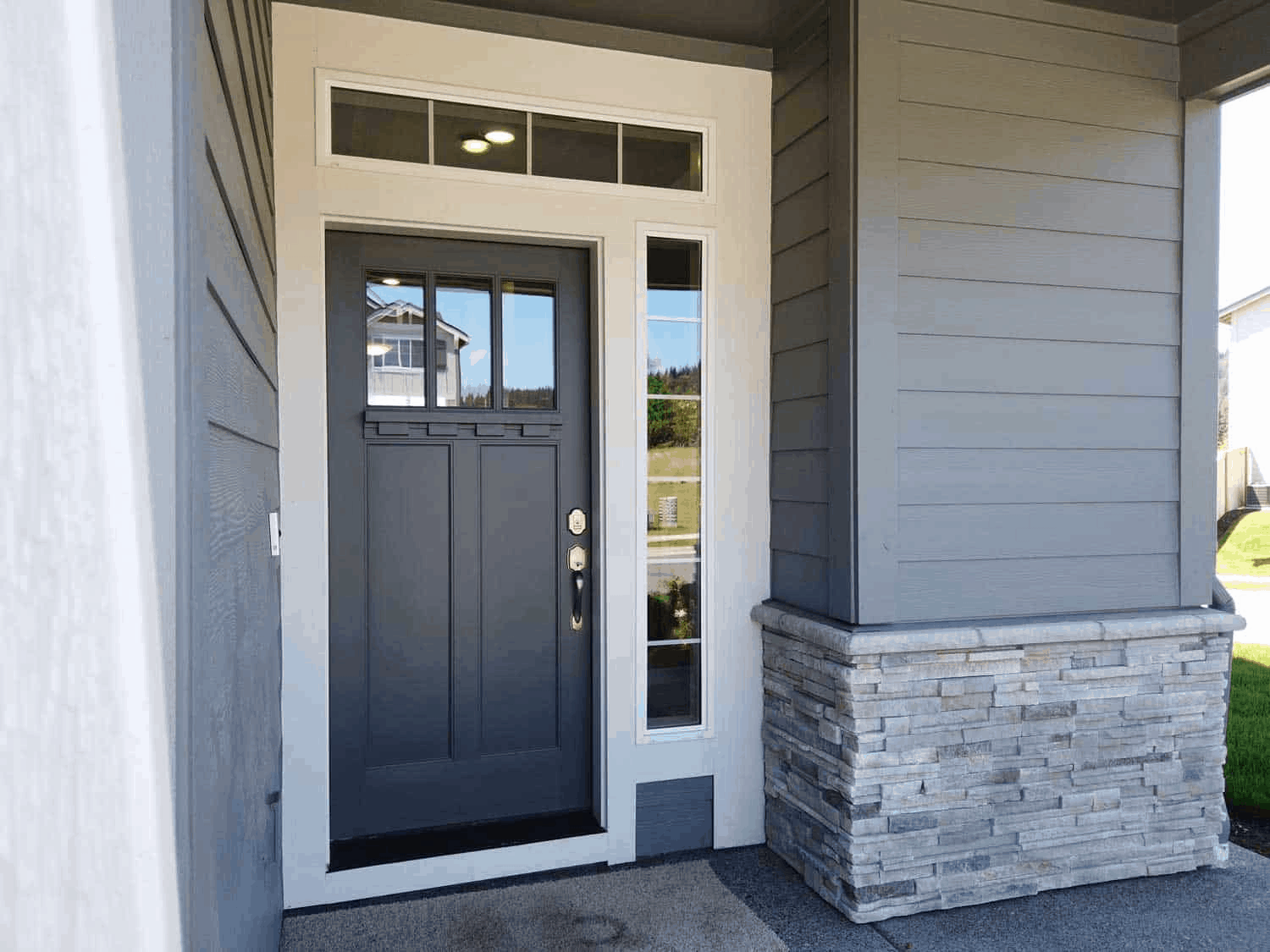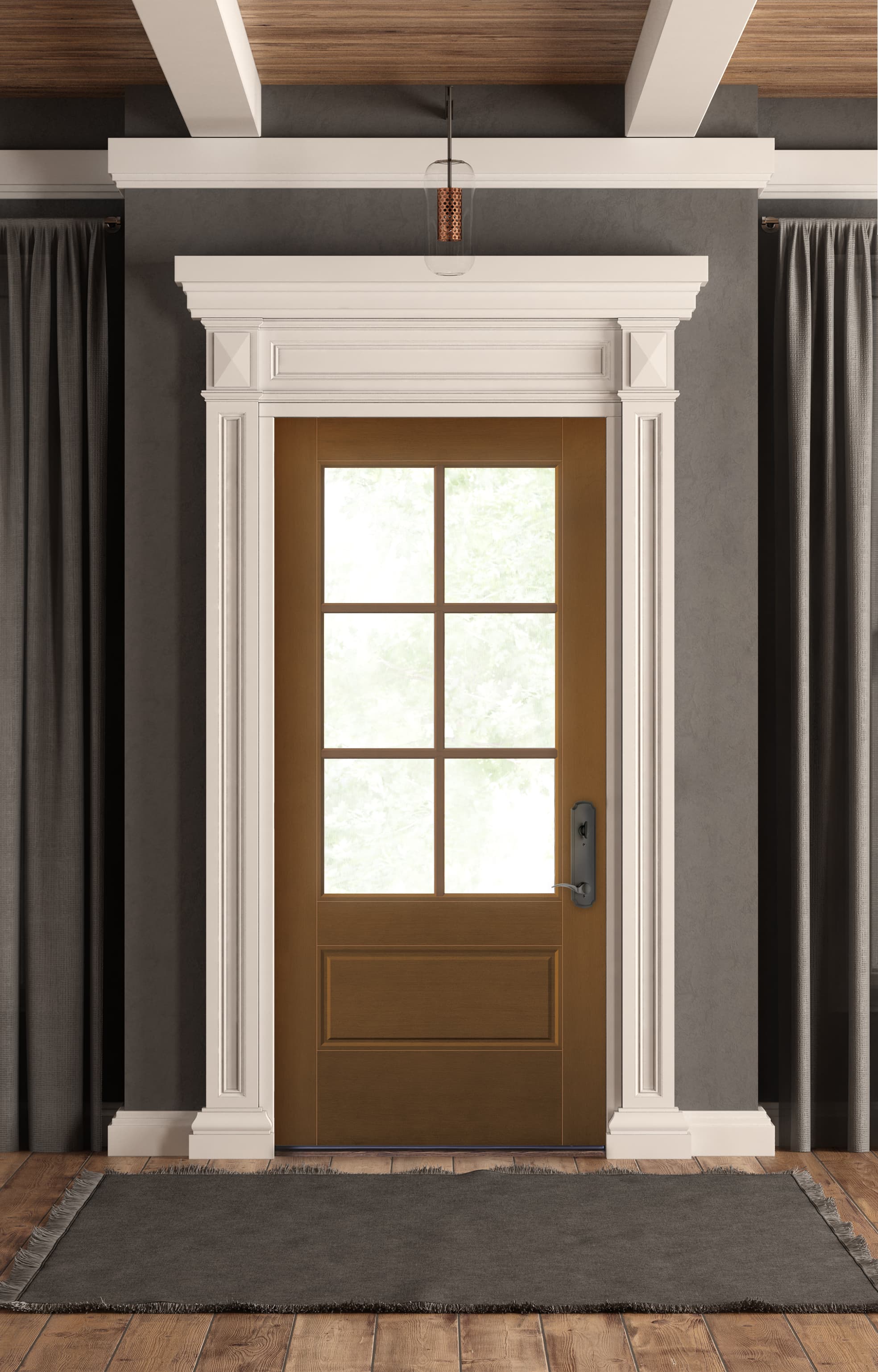When it comes to enhancing the exterior of your home, something as simple as decorative door trim can make a significant impact. I remember the first time I decided to upgrade my home’s curb appeal; I was amazed at how a few well-chosen trim pieces turned my plain door into a stunning focal point. In this article, we’ll delve deep into decorative exterior door trim, discussing styles, materials, benefits, installation tips, and more to help you make an informed decision.
What is Decorative Exterior Door Trim?
Decorative exterior door trim is the detailing around your door that frames it and adds character to your home. It’s not just about aesthetics; trim serves practical purposes too, providing protection against weather elements and enhancing energy efficiency.
Types of Decorative Exterior Door Trim
There are various types of decorative door trim available, each offering unique styles and functionalities. Understanding these types can help you select the right trim for your home.
1. Casing Trim
Casing trim is typically installed around the door frame. It can be simple or ornate, depending on your style preferences.
Pros:
- Cost-effective
- Easy to install
Cons:
- May not offer much weather resistance
2. Pediments
Pediments are decorative crowns that rest above the door, often found in classical architecture. They add an elegant touch to any home’s facade.

Pros:
- Adds grandeur to entrances
- Available in various styles (triangular, curved, etc.)
Cons:
- Can be expensive
- Requires careful installation

3. Decorative Molding
Molding can be applied around the door frame, offering a more intricate design that complements any architectural style.
Pros:
- Versatile styles available
- Can match other design elements in your home

Cons:
- Requires more maintenance
- Can be difficult to paint or stain
Materials for Decorative Door Trim
Choosing the right material for your decorative door trim is crucial for durability and aesthetic appeal. Here’s a comparison of popular materials:

| Material | Durability | Cost | Maintenance | Appearance |
|---|---|---|---|---|
| Wood | Moderate | High | Requires regular painting/staining | Warm and classic |
| Vinyl | High | Low | Minimal | Modern and sleek |
| Fiberglass | Very High | Moderate | Minimal | Can mimic wood |
| Composite | High | Moderate | Little maintenance needed | Varies widely |
Benefits of Decorative Exterior Door Trim
Investing in decorative exterior door trim can offer several benefits:

1. Enhanced Curb Appeal
Decorative trim can transform an ordinary door into a statement piece, greatly improving your home’s exterior aesthetics.
2. Increased Property Value
A well-trimmed door enhances your home’s value, making it more attractive to potential buyers.

3. Weather Protection
Trim provides an additional layer of protection from rain, snow, and wind, which can prolong the life of your door and frame.
4. Energy Efficiency
Quality trim helps seal gaps around doors, contributing to better insulation and energy efficiency.
Choosing the Right Decorative Trim for Your Home
Selecting the perfect decorative trim involves consideration of your home’s architectural style, your budget, and your desired aesthetic.
1. Consider Your Home’s Style
Whether your home is modern, traditional, or somewhere in between, choose trim that complements its architecture.
2. Set a Budget
Determine your budget before shopping for trim. Quality options are available at various price points.
3. DIY vs. Professional Installation
Depending on the complexity of the trim, you might consider DIY installation or hiring a professional. I took the DIY route for my first installation, and while it was challenging, the satisfaction of a job well done was worth it! However, for intricate designs, a professional might be the better option.
Installation Tips for Decorative Exterior Door Trim
Getting your decorative exterior door trim installed correctly is key to its long-term success. Here are some tips I learned from experience:
1. Preparation is Key
Measure your door frame accurately. A small error can lead to a poor fit and frustration during installation.
2. Choose the Right Tools
Gather all necessary tools before starting. Common tools include a miter saw, hammer, nails, and caulk.
3. Follow Manufacturer Instructions
Always adhere to the instructions provided by the trim manufacturer for best results.
4. Finishing Touches
Don’t forget finishing touches such as painting or staining to protect the trim and match your home’s aesthetics.
Common Mistakes to Avoid
In my experience, I’ve learned that avoiding certain pitfalls can save you time and money. Here are some of the most common mistakes:
1. Skipping the Measurement Process
Accurate measurements are crucial. Skipping this step can lead to wasted materials.
2. Ignoring Weather-Resistance Features
Ensuring your trim is weather-resistant will help protect it and your door from the elements.
3. Choosing Style Over Function
While aesthetics matter, don’t compromise on functionality. Choose trim that serves both purposes.
FAQs About Decorative Exterior Door Trim
1. What types of materials are best for exterior door trim?
The best materials include wood, vinyl, fiberglass, and composite. Each has its pros and cons regarding cost, durability, and maintenance.
2. Can I install decorative trim myself?
Yes, many homeowners opt for DIY installation. However, consider seeking professional help for intricate designs.
3. How often should I maintain my decorative trim?
Regular maintenance includes inspecting for damage and repainting or sealing as necessary, typically every few years.
4. Will decorative trim increase my home’s value?
Yes, a well-installed decorative trim can enhance your home’s curb appeal and overall value.
5. What styles of decorative trim are currently popular?
Popular styles include farmhouse, modern geometric designs, and classic colonial styles, depending on current trends and personal preferences.
Conclusion
Decorative exterior door trim is an excellent way to enhance your home’s aesthetic and improve its functionality. Whether you choose simple casing or ornate pediments, the right trim can truly transform your entrance. Remember to consider your home’s style, budget, and whether you will install it yourself or hire professionals. From personal experience, I can say that this upgrade has brought both beauty and value to my home, and I encourage you to explore the possibilities!